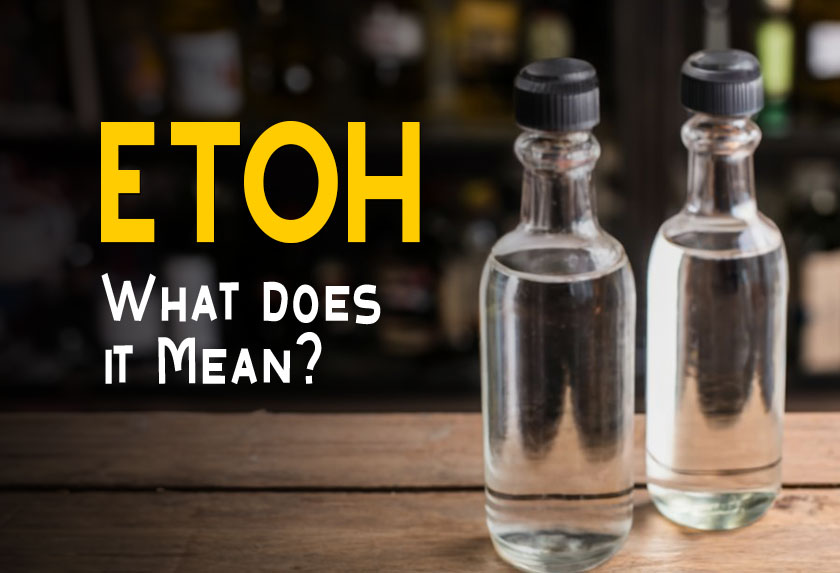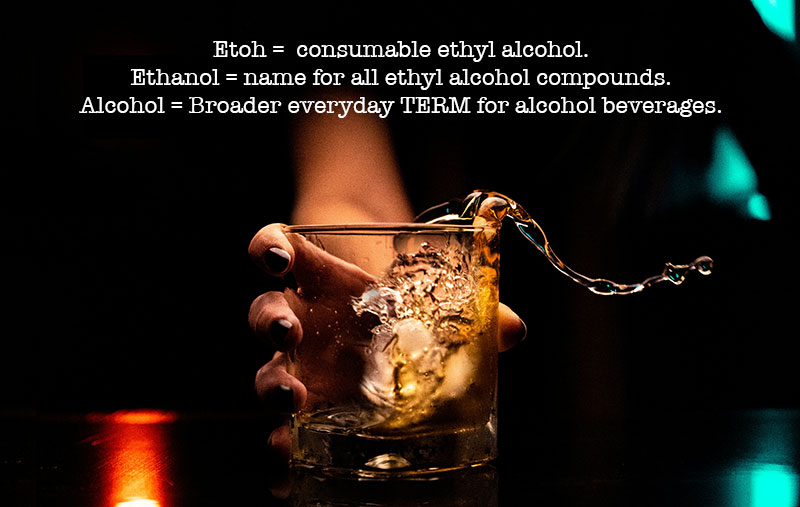EtOH Meaning
Etoh Meaning : an abbreviation that stands for ethanol, also known as ethyl alcohol.
EtOH Medical Abbreviation
Etoh originated as a shorthand way for medical professionals and scientists to refer to ethanol.
It comes from the chemical formula for ethanol, which is C2H5OH.
The “et” part stands for ethyl, the “o” stands for oxygen, and the “h” stands for hydrogen.
So etoh became a condensed way to refer to this compound.
Over time, this abbreviation made its way into wider use to simply mean ethanol or ethyl alcohol.
What is Ethanol?
Ethanol, sometimes called ethyl alcohol, is a colorless liquid that is the intoxicating ingredient in alcoholic beverages like beer, wine, and liquor.
It is created naturally through the fermentation of sugars by yeast or manufactured industrially for a variety of applications.
Ethanol is used in thermometers, perfumes, paints, tinctures, and various household solvents and cleaners.
It also commonly used as a gasoline additive, blended with petrol to make the fuel burn cleaner.
EtOH Meaning in Medicine and Science
In medicine and science, etoh meaning is widely used to refer specifically to ingestible alcohol that leads to intoxication.
This differentiation is important because alcohol has broad uses across many scientific fields of study.
Calling ingestible alcohol “etoh” specifies that it’s being examined for its effects on physiology and behavior, not for any other chemical purposes.
Medical researchers look at the impacts of etoh consumption on health and study disorders relating to alcohol abuse.
Scientists investigate how etoh affects the brain and behavior.
The abbreviation allows them to clearly distinguish this type of alcohol from other laboratory alcohols used for scientific processes or sterilization.
Common Places You’ll See Ethanol Alcohol
Since etoh meaning is specifically drinkable alcohol, you’ll typically see it used in medical settings like hospitals, treatment centers, research papers, injury reports, and coroner examinations.
For example, an emergency room doctor may note that a patient presented with “signs of etoh overdose.”
Or a medical form might ask how much etoh a person consumes on a typical day.
In drug and alcohol rehabilitation contexts you may hear people refer to “etoh abuse” or “etoh addiction.”
In law enforcement, etoh may appear on things like blood toxicology tests and police reports to indicate when a driver was impaired due to alcohol intoxication.
So in summary, seeing or hearing the abbreviation “etoh” is generally an indication that alcohol consumption is being formally referenced, often in a medical, scientific, or legal context.
Etoh vs. Ethanol vs Alcohol
Etoh, ethanol and alcohol are essentially different terms for the same chemical compound:
- Etoh = Abbreviation that specifically means consumable ethyl alcohol.
- Ethanol = Formal chemical name for all ethyl alcohol compounds.
- Alcohol = Broader everyday term for ethanol/ethyl alcohol beverages.
The distinction is that etoh refers only to forms of ethyl alcohol that can be drunk, while ethanol and alcohol can indicate other chemical variations as well.
Many people use these terms interchangeably in casual conversation, but etoh has a more precise definition in medical and scientific applications.
Blood Alcohol Content and Etoh Intoxication
Blood alcohol content (BAC) measures the concentration of ethanol (etoh) in a person’s bloodstream as a result of drinking.
This percentage indicates how severely a person is impaired by the effects of alcohol intoxication.
BAC levels are used to establish legal intoxication for purposes like driving under the influence. In the United States, 0.08% is the legal BAC limit for driving.
Higher BAC indicates greater impairment of cognition, motor functions and decision-making as etoh increasingly affects the brain and body.
Extremely high BAC can lead to alcohol poisoning which can cause respiratory failure and death.
So knowing someone’s etoh level based on BAC testing gives medical insight on their level of drunkenness and alcohol toxicity.
Ethanol Abuse
Ethanol abuse refers to drinking alcoholic beverages in excess over an extended period of time. This can lead to alcohol use disorder (AUD) or alcohol addiction.
People who engage in ethanol abuse often drink large quantities of alcohol on a regular basis just to feel its effects or to get drunk. They may start drinking first thing in the morning or drink alone regularly.
Signs of ethanol abuse can include:
- Continuing to drink despite alcohol-related legal issues or relationship problems
- Neglecting responsibilities at work, school or home because of alcohol use
- Giving up previously enjoyable activities to drink
- Requiring larger amounts of alcohol to get desired effects
- Experiencing withdrawal symptoms like nausea, sweating or shaking when not drinking
Substance abuse can lead to developing tolerance, physical dependence and addiction. It can seriously impact someone’s physical and mental health.
Drinking high levels of ethanol over years damages organs like the liver, brain, heart and pancreas. It also increases the risk of multiple types of cancer.
Mentally, ethanol abuse or alcohol misuse can contribute to anxiety, depression, dementia, seizures and other health conditions.
The only treatment for ethanol addiction is to safely detox and completely stop drinking alcohol through alcohol rehab programs.
Otherwise the consequences of sustained etoh abuse can be disabling or life-threatening.
Getting help is essential.
Frequently Asked Questions
Here are answers to some frequently asked questions about the abbreviation etoh:
What does etoh stand for?
Etoh stands for ethanol, also known as ethyl alcohol. It’s often used to refer specifically to consumable types of alcohol.
How is etoh different from ethanol?
There’s no chemical difference. Etoh meaning is simply shorthand for ethanol when referring to ingestible alcohol rather than industrial variations.
What does it mean if a medical report says “etoh abuse”?
This means the patient likely struggles with alcoholism or excessive drinking. The “etoh” clarifies that drinking alcohol specifically is the substance being abused.
What does BAC measure?
BAC or blood-alcohol concentration measures the percentage of ethanol (etoh) in someone’s blood after they drink alcohol. This indicates their level of intoxication.
Is etoh the same as alcohol?
Yes, etoh and alcohol both refer to the chemical ethanol. “Etoh” is more formal and used in medical/scientific contexts, while “alcohol” is a common everyday term.
Why use etoh instead of alcohol?
The abbreviation etoh signals that ingested ethanol specifically is being referenced. This disambiguates it from industrial ethanol uses in medicine and science.
So in summary, the term “etoh” or etoh meaning simply provides a concise and unambiguous way for professionals to reference consumable alcohol and its impacts on health and behavior.















